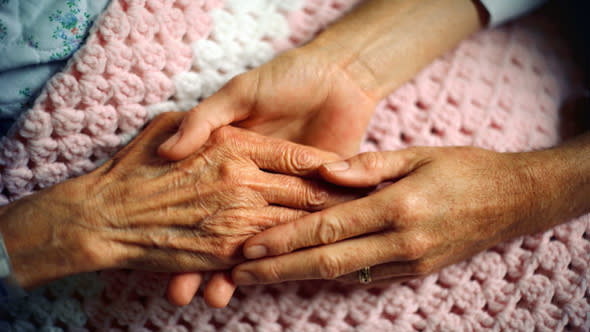Elderly care - understanding your options

Pic: Getty
As our parents or close relatives age, it is often the case that day-to-day living alone becomes more and more difficult. But needing care doesn't mean having to live in a care home. In fact there are many different options available to help the elderly live happily and comfortably in their own home.
Related Searches
Changes to the home
There is plenty of equipment and aids available to help an elderly person manage at home, including relatively minor changes such as handrails to more expensive items such as walk-in shower and stairlifts. Technology can also offer assistance in the form of fall detectors, safety monitors and home care alerts, in case your relative is in trouble or has hurt themselves. The charity Age UK has information on how to make changes to the home and how to finance them.
Support services
Services such as meals on wheels, usually available via social services or a charity, can make a real difference if your elderly relative struggles with cooking and getting good nutrition, and these meals can be tailored to meet their specific needs. Most local authorities also run day centres that offer the elderly a chance to get out and about, socialise and enjoy trips of activities.
Home help
This enables your relative to stay in their own home, but benefit from having a carer who can undertake a variety of activities, from assistance with getting up, washing and dressing, to housework, cooking and shopping. Similarly, a personal assistant, either paid for privately or via a personal budget from the council, can provide support with daily activities, and could even live in your relative's home if they have extra space.
When arranging domestic home help, it is advisable to make a number of checks, including whether the care agency is a member of the UKHCA, is insured, and that care workers undergo a criminal record disclosure. If you choose the personal assistant route, it is essential to get references, preferably someone that you can speak to as well as the written variety, and ensure you are clear on the costs involved. Home help may also be available via the local council.
Assisted living
For many elderly people, assisted living, either in self-contained supported housing or a retirement village, offers independence as well as support services such as maintenance, laundry and even meals in some cases, and activities.
%VIRTUAL-AFCSponserAds%
Care homes
If living alone, even with help and support, becomes too much, a care home could be the right solution. Those that are labelled as 'care homes' provide personal care such as washing, dressing and administering medication, while others also including nursing, whereby medical care is available round the clock. Specialist homes, for example for those with dementia or a terminal illness, are also available.
The many options available can give elderly people the help they require, and offer peace of mind to their families, and getting the right kind of assistance is essential, so take the time to discuss it with your elderly relative and find the best solution for all.
Have you organised home care for a family member? What advice would you give to others? Leave your comments below...



